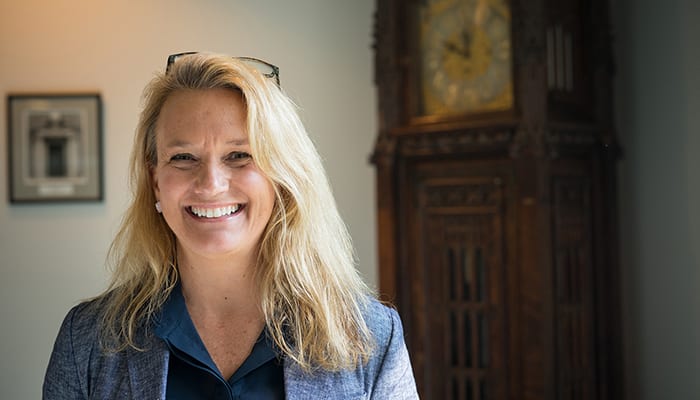News
New Ventures: Jacqueline Heard Joins BTI Boards
 Jacqueline Heard, a recent addition to both the Board of Directors and the Scientific Advisory Board (SAB), is passionate about moving innovative ideas to improve agriculture from the lab to the field.
Jacqueline Heard, a recent addition to both the Board of Directors and the Scientific Advisory Board (SAB), is passionate about moving innovative ideas to improve agriculture from the lab to the field.
In her career, Heard has transitioned from a lab scientist in plant pathology to a venture capitalist at a plant biotech company to a startup adviser, helping to launch new agriculture-related companies. Throughout these shifts, Heard has focused on the best ways to advance agriculture for enhanced food security and sustainability. Serving on BTI’s Boards is the latest manifestation of her interests, and BTI is fortunate to be the beneficiary of Heard’s scientific and business expertise.
Heard first became interested in getting involved with BTI through Paul Chomet, a current member of the Board and SAB. Chomet and Heard worked together at Monsanto Co. on the commercialization of DroughtGuard™, a drought-tolerant variety of maize. Previously, Heard had also worked with the 2Blades Foundation, a non-profit that awards grants in support of research to combat crop diseases. Chomet thought that Heard had the perfect combination of experiences to be an asset to the BTI Board.
Heard started her plant science career by studying symbiotic nitrogen fixation during her Ph.D. work at Boston College. She then completed a postdoc in plant pathology in Fred Ausubel’s lab at Harvard. Afterward, she switched coasts and moved to the Bay Area to help start the biotech company Mendel Biotechnology, Inc., with Ausubel and others.
“It was hard because I thought, ‘maybe I won’t be able to get back into the academic community,’ but I felt that they were doing such incredible science,” said Heard. “I have no regrets. I’m very glad that I’ve taken the path of going into industry as an alternative to academia.”
After spending five years as Research Director at Mendel Biotechnology Inc., Heard left to join Monsanto, where she led multidisciplinary teams to develop new stress-resistant crop varieties. As she became more interested in ways to encourage innovation in agriculture, Heard decided to join the business side of the company. She returned home to Boston to earn an MBA at the Massachusetts Institute of Technology Sloan School of Management and became Investment Director in Monsanto’s venture capital group.
Most recently, Heard was a partner at Flagship VentureLabs, a company that launches startups and has a focus on sustainability in agriculture, and now is starting her own consulting company to help develop ag-related startups. She believes that being a strategic advisor to small startups is the best way for her to increase innovation in agriculture.
“I think there’s a tremendous opportunity to help young startups,” said Heard. “I believe it’s such a critical and socially impactful place to put my passion and energy.”
Outside of work, Heard serves on the SAB of Keystone Symposia, a non-profit organization that develops conferences for scientists who do basic research in the life sciences. She helps them to develop interesting content and to decide on a portfolio of conferences for the year. She also gives her time to advise a handful of ag-focused startups coming from her alma mater, MIT. Additionally, she is a member of Sloan Women in Management, a community of women who have graduated from the Sloan program.
At Heard’s first BTI Board and SAB meetings in May, she was impressed with BTI research and the quality of its public outreach. She plans to work with the Technology Transfer office, lending her practical experience in shepherding inventions from the research stage into commercial application, as well as her contacts in the nonprofit and venture capital communities. She has been pleased to see that BTI is fostering a concentration in computational biology at the institute, which leverages low-cost sequencing and new breeding technologies. She hopes that BTI will continue to expand in this area.
“The institute concentrates on diverse areas of plant biology, which are so critical to food security and developing world agriculture,” said Heard. “It’s a critical area of research and the breadth and the quality of the science at BTI is incredibly impressive.”


